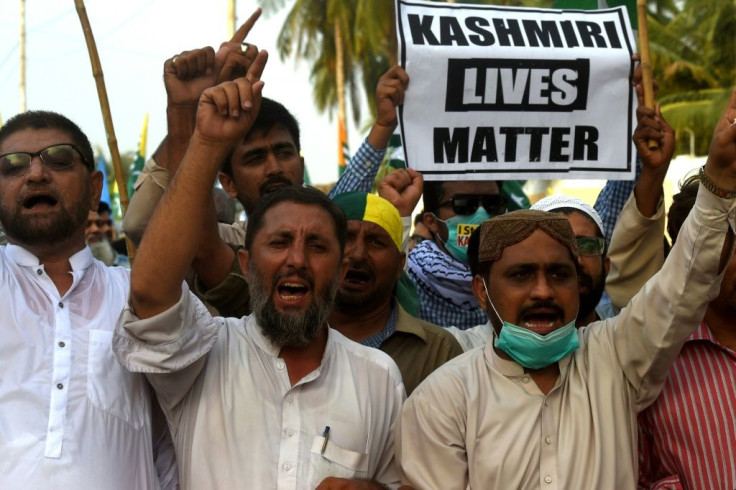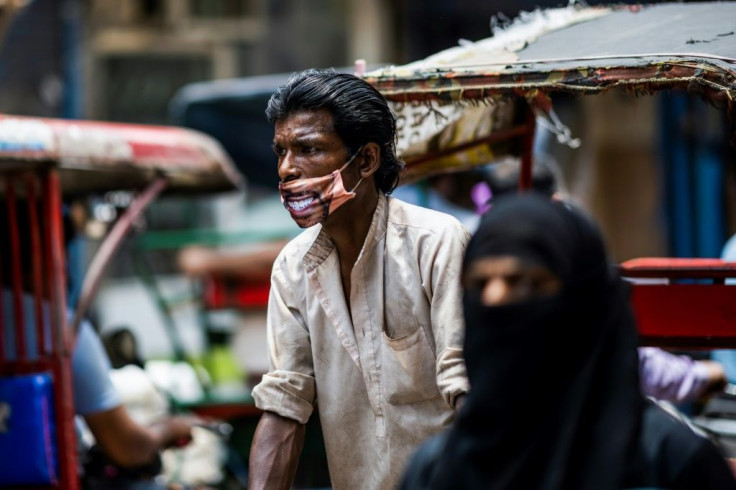#IStandWithUmarKhalid Trends As Delhi Police Arrest Muslim Leader After Deadly Riots

KEY POINTS
- Delhi police have arrested Muslim student protest leader Umar Khalid following February's lethal anti-Muslim riots
- The protests were a response to India's citizenship amendment giving a path to citizenship only to non-Muslim immigrants
- Delhi police have declined to prosecute Hindu provocateurs. Amnesty International India alleges they encouraged the riots
Muslim student protest leader Umar Khalid has been arrested on charges stemming from violent anti-Muslim riots that broke out in response to India’s citizenship amendment. Critics say peaceful Muslim leaders are being prosecuted while Hindus who incited violence go free.
Khalid was charged with being a “key conspirator” in the riots that killed more than 50 last February. The riots targeted Muslims following the enactment of an immigration amendment that gave non-Muslims from India's neighboring states a path to citizenship. In the aftermath, Delhi police have arrested peaceful Muslim protest organizers while declining to prosecute Hindu figures involved in the unrest.
#IStandWithUmarKhalid trended on Twitter as people decried the arrests as a "witch hunt" and said Khalid's only crime was being a Muslim and speaking out.
Protesting is a crime.
— Anna MM Vetticad (@annavetticad) September 13, 2020
Criticising this government is a crime.
Being #Muslim is a crime.
Let us not pretend that there is anything more to #UmarKhalid's arrest than this. #IStandWithUmarKhalidhttps://t.co/jmQYnJ6x4F
Was waiting for @bob_almost @Bobby_almost to create the perfect speaking image. Here it is. #UmarKhalid #StandWithUmarKhalid #IStandWithUmarKhalid pic.twitter.com/qSugw4xs4o
— Kavita Krishnan (@kavita_krishnan) September 14, 2020
BJP Govt desperately arresting Progressive,Educated,Young & Eloquent Muslim individuals like @UmarKhalidJNU. We fought together against CAA in Mumbai/Mah.Umar is a Patriot & #IStandWithUmarKhalid @PoojaB1972 @FahadBombay @RichaChadha @Shehla_Rashid @AbdurRahman_IPS @drkafeelkhan pic.twitter.com/kpuaJjlfqW
— Farhan Azmi (@abufarhanazmi) September 14, 2020
India’s citizenship amendment gives a path for illegal immigrants to become Indian citizens only if they belong to religious minorities from neighboring countries, such as Hindus, Sikhs, Buddhists, Jains, Parsis or Christians. Muslims from those countries do not have a path to citizenship. Indian Home Minister Amit Shah has said Muslims are not persecuted and do not need to seek asylum in India.
“[Muslims] will not benefit from this amendment because they have not been persecuted on the basis of religion,” he told Parliament. He later added: “What do you want -- that we give every Muslim coming from any anywhere in the world citizenship? ... The country cannot function this way.”

India’s supreme court declined to put a hold on the law, instead directing the government to respond to the multitude of suits saying that the law violated the secular norms outlined in India’s constitution. The law went into effect in early January, provoking riots in late February. The violence resulted in 53 deaths, over 600 arrests, and the deployment of paramilitary personnel.
A report from Amnesty International India alleges that Delhi police forces tortured prisoners, broke up peaceful protests, stood aside for violent rioters, and even joined them in throwing stones. Although the riots targeted Muslims, police arrested mostly Muslims afterward. They have also arrested students and professors on charges that they organized the riots to undermine the government. None of the people documented making speeches provoking hatred in the leadup to the deadly riots has been prosecuted.
© Copyright IBTimes 2025. All rights reserved.





















